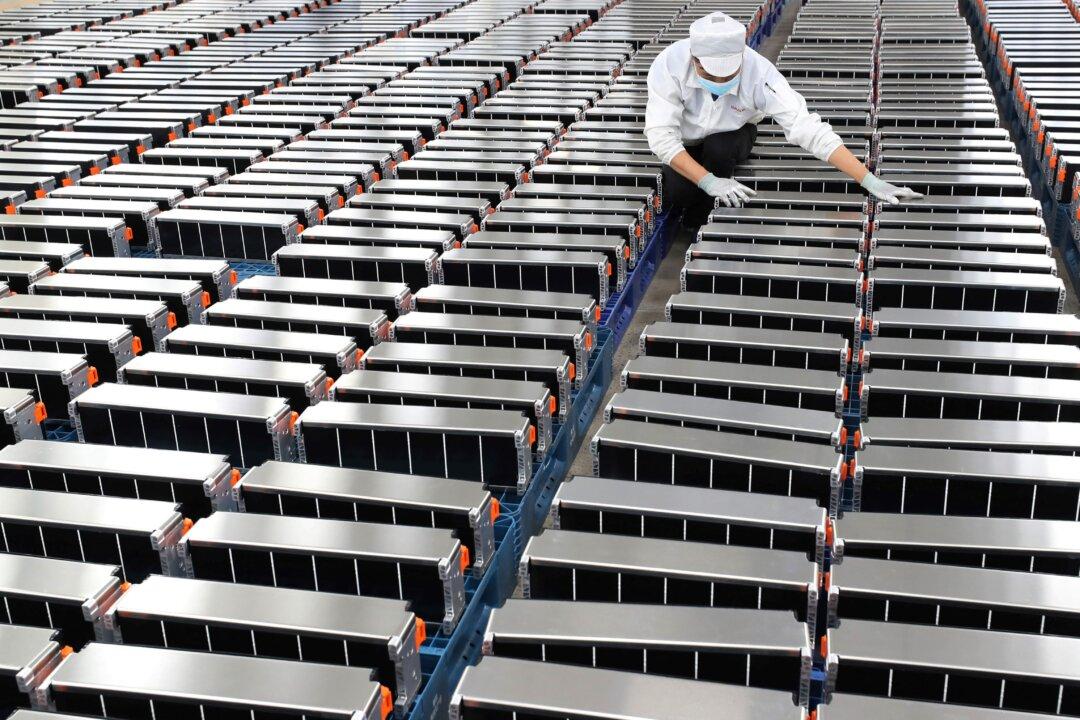Britain is falling behind in the race to develop an electric battery industry, a House of Commons committee heard on May 9, as it received evidence from an expert panel on battery materials.
Business consultants and executives told the MPs during a Business and Trade Committee session that Britain has “missed the boat” in the first wave of the electric battery revolution and failed to boost development of a successful supply chain. When questioned about the reasons for poor performance, chief executive of Benchmark Mineral Intelligence Simon Moores said: “You have to ask what the automotive companies here, the big chemical companies like Ineos in the UK, were doing.”





